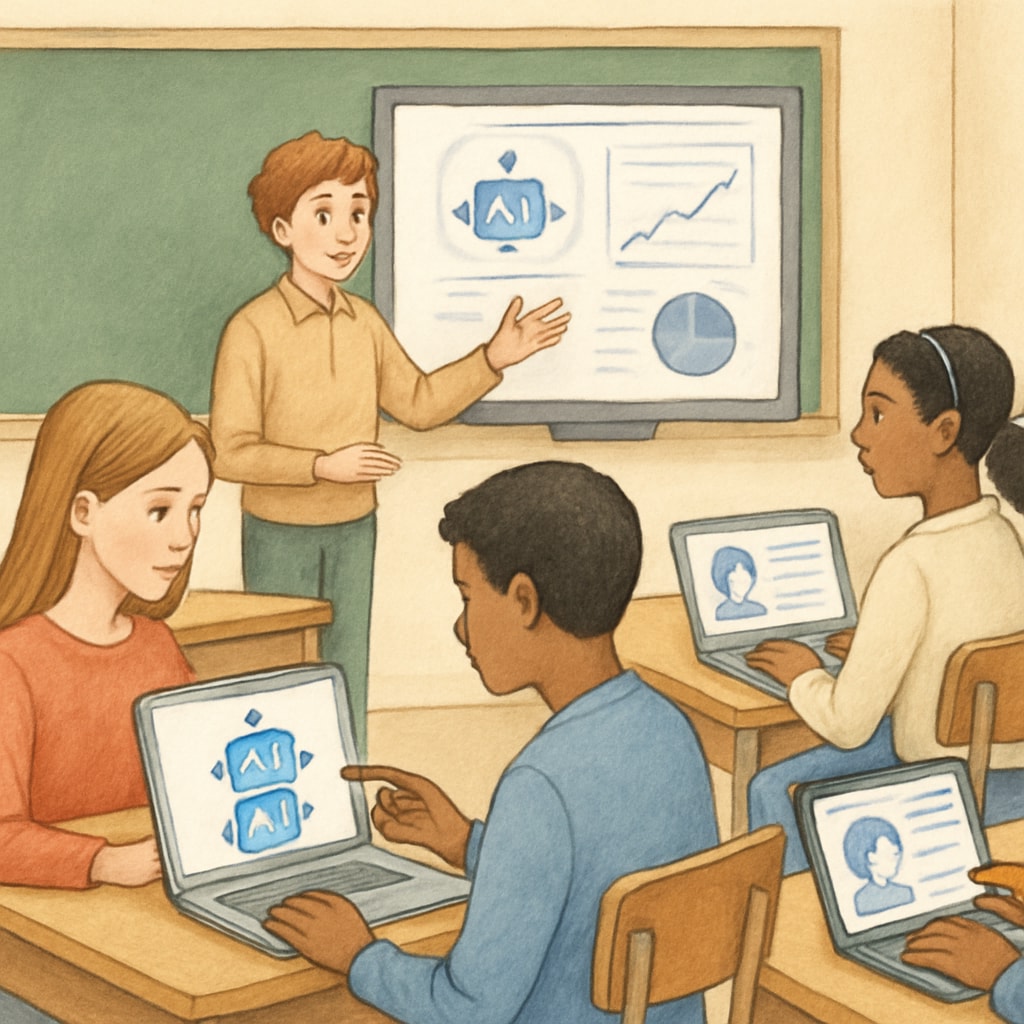As AI tools like Google Gemini rapidly infiltrate classrooms, the professional value of teachers and their salary structures may be entering a transformative phase. From K-12 education to higher learning institutions, artificial intelligence is revolutionizing teaching methods, sparking critical conversations about the future of educational roles. In this article, we examine the implications of AI on teacher value, salary structures, and the broader education landscape.
The Growing Presence of AI in Education
Artificial intelligence has made significant inroads into education through tools like Google Gemini, adaptive learning platforms, and virtual tutors. These technologies promise increased efficiency, personalized learning experiences, and instant feedback for students. However, while AI can streamline many aspects of teaching, it also raises questions about the evolving role of educators. For example, if AI can deliver tailored lesson plans and evaluate student performance, what unique value does a human teacher bring to the classroom?

Reassessing Teacher Value
Historically, teachers have been valued for their ability to inspire, empathize, and adapt to individual student needs—qualities that AI cannot replicate. However, in an efficiency-driven educational environment, these human-centric skills may be overshadowed by the data-driven advantages AI offers. As a result, the professional worth of teachers may be redefined, potentially affecting how their contributions are perceived and compensated.
- Human connection: Teachers excel at fostering relationships and understanding emotional needs, areas where AI falls short.
- Mentorship: Educators guide students in developing critical thinking and social skills, beyond academic knowledge.
- Adaptability: Unlike AI, teachers can modify their approach based on real-time classroom dynamics.
Impacts on Salary Structures
With the integration of AI, the traditional salary structures for educators could face significant disruption. Schools may prioritize funding for advanced AI tools over increasing teacher salaries, viewing technology as a more scalable investment. This shift could lead to a decline in teacher wages or a growing disparity between educators who embrace AI and those who rely solely on traditional methods.
Furthermore, as AI takes over administrative and repetitive tasks, some argue that teachers should be compensated based on their ability to leverage technology effectively. This could create a tiered salary system, rewarding tech-savvy educators while leaving others behind.

The Future of Education and Teacher Roles
Looking ahead, the coexistence of AI and human educators will likely redefine teaching roles. While AI may handle data analysis and personalized learning plans, teachers will focus on areas where human interaction is indispensable. For example, guiding discussions on ethics, creativity, and emotional intelligence—skills essential for the holistic development of students.
However, this shift requires educators to adapt and embrace technology as part of their toolkit. Professional development programs focusing on AI literacy will be crucial in ensuring teachers remain relevant in increasingly tech-driven classrooms.
Key Considerations for Policymakers:
- Ensuring fair salary structures that recognize both technological proficiency and human-centered teaching skills.
- Investing in AI training programs to support teacher adaptation to new technologies.
- Balancing funding between AI tools and retaining qualified educators.
Conclusion
The integration of AI tools like Google Gemini into classrooms is reshaping the education landscape, prompting a reevaluation of teacher value and salary structures. While AI offers undeniable benefits in efficiency and personalization, the irreplaceable qualities of human educators—empathy, mentorship, and adaptability—must not be overlooked. Policymakers, educators, and institutions must collaborate to ensure that teachers remain central to the learning process while embracing the advantages of technology.
As the AI revolution unfolds, the education sector faces a critical challenge: striking a balance between technological innovation and the preservation of human-centric teaching values. The future of education depends not only on the capabilities of AI but also on the ability of educators to adapt and thrive in this new era.


